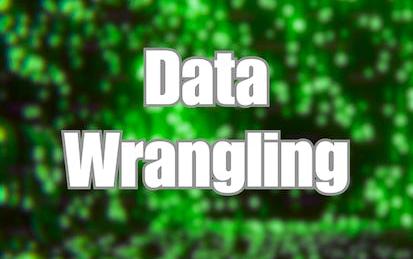

Our Courses

Data Wrangling with Python
This specialization covers various essential topics such as fundamental tools, data collection, data understanding, and data preprocessing. This specialization is designed for beginners, with a focus on practical exercises and case studies to reinforce learning. By mastering the skills and techniques covered in these courses, students will be better equipped to handle the challenges of real-world data analysis. The final project will give students an opportunity to apply what they have learned and demonstrate their mastery of the subject.
-
Course by

-
 English
English

Machine Learning on Google Cloud
What is machine learning, and what kinds of problems can it solve? How can you build, train, and deploy machine learning models at scale without writing a single line of code?
-
Course by

-
 Self Paced
Self Paced
-
 English
English

Data Mining Foundations and Practice
The Data Mining specialization is intended for data science professionals and domain experts who want to learn the fundamental concepts and core techniques for discovering patterns in large-scale data sets.
-
Course by

-
 Self Paced
Self Paced
-
 English
English

Advanced Business Analytics Capstone
The analytics process is a collection of interrelated activities that lead to better decisions and to a higher business performance. The capstone of this specialization is designed with the goal of allowing you to experience this process. The capstone project will take you from data to analysis and models, and ultimately to presentation of insights. In this capstone project, you will analyze the data on financial loans to help with the investment decisions of an investment company.
-
Course by

-
 Self Paced
Self Paced
-
 20 hours
20 hours
-
 English
English

Data Mining Pipeline
This course introduces the key steps involved in the data mining pipeline, including data understanding, data preprocessing, data warehousing, data modeling, interpretation and evaluation, and real-world applications. This course can be taken for academic credit as part of CU Boulder’s MS in Data Science or MS in Computer Science degrees offered on the Coursera platform. These fully accredited graduate degrees offer targeted courses, short 8-week sessions, and pay-as-you-go tuition. Admission is based on performance in three preliminary courses, not academic history.
-
Course by

-
 Self Paced
Self Paced
-
 22 hours
22 hours
-
 English
English

Machine Learning with PySpark: Customer Churn Analysis
This 90-minute guided-project, "Pyspark for Data Science: Customer Churn Prediction," is a comprehensive guided-project that teaches you how to use PySpark to build a machine learning model for predicting customer churn in a Telecommunications company. This guided-project covers a range of essential tasks, including data loading, exploratory data analysis, data preprocessing, feature preparation, model training, evaluation, and deployment, all using Pyspark.
-
Course by

-
 Self Paced
Self Paced
-
 3 hours
3 hours
-
 English
English

Machine Learning Models in Science
This course is aimed at anyone interested in applying machine learning techniques to scientific problems. In this course, we'll learn about the complete machine learning pipeline, from reading in, cleaning, and transforming data to running basic and advanced machine learning algorithms. We'll start with data preprocessing techniques, such as PCA and LDA. Then, we'll dive into the fundamental AI algorithms: SVMs and K-means clustering. Along the way, we'll build our mathematical and programming toolbox to prepare ourselves to work with more complicated models.
-
Course by

-
 Self Paced
Self Paced
-
 12 hours
12 hours
-
 English
English

TensorFlow for Beginners: Basic Binary Image Classification
The goal of this project is to introduce beginners to the basic concepts of machine learning using TensorFlow. The project will include, how to set up the tool and get started as well as understanding the fundamentals of machine learning/neural network model and its key concepts. Learning how to use TensorFlow for implementing machine learning algorithms, data preprocessing, supervised learning. Additionally, learners develop skills in evaluating and deploying machine learning models using TensorFlow.
-
Course by

-
 Self Paced
Self Paced
-
 4 hours
4 hours
-
 English
English

Machine Learning in the Enterprise
This course takes a real-world approach to the ML Workflow through a case study. An ML team faces several ML business requirements and use cases. The team must understand the tools required for data management and governance and consider the best approach for data preprocessing. The team is presented with three options to build ML models for two use cases. The course explains why they would use AutoML, BigQuery ML, or custom training to achieve their objectives.
-
Course by

-
 Self Paced
Self Paced
-
 20 hours
20 hours
-
 English
English



